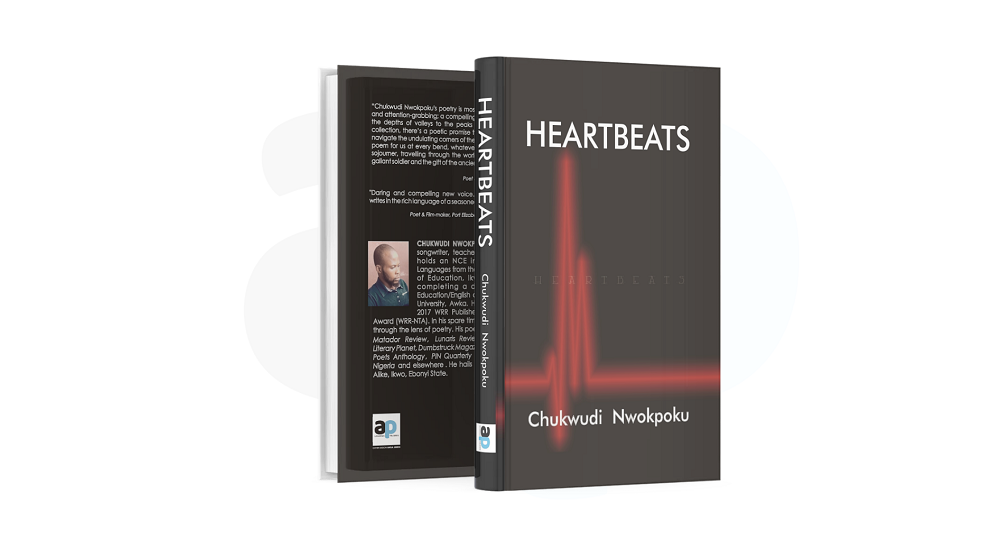TITLE: HEARTBEATS AUTHOR: CHUKWUDI NWOKPOKU GENRE: POETRY NO. OF PAGES: 92 YEAR OF PUBLICATION: 2020 ISBN: 978-978-986-437-9 PUBLISHER: AUTHORPEDIA PUBLISHERS REVIEWER: EUGENE YAKUBU
In an appraisal of nature, ecology and poetry, Nwokpoku weaves together his songs of longing, nostalgia and love. With a poet’s precision and eye for detail he captures some of those things we overlook in the bustle of everyday life. After going through Heartbeat, you feel like you’re just getting to notice nature, how the earth sits and how our environment has been arranged all along. Nwokpoku reminds us of those little things that matters most, those things that stir our soul and move our heart and make us human again.
Reading this collection feels like walking down a lonely path in the middle of a forest, smells of cold soil and earthworms, the scent of flowers and green plants, sunbeams seeping through the leaves to touch the earth.
And that’s the amazing thing about Nwokpoku’s poetry, the ability to take us out of our busy lives for a minute or more or as long as the poem lasts and show us around then bringing us back to the world again. And in a time when issues around environment and ecology have been prioritized by INGOs, Nwokpoku’s poetry lends its voice to offer us aspects of the environment we’d otherwise not have noticed before now.

The poet obviously has a mastery of language which surfaces in most of his poems.
It is enough to read the poems for their language, which the poet skillfully weaved even though the meanings in his poems sometimes seem elusive and there isn’t much engagement with a subject matter or thinking. Sometimes the words just collide beautifully against each other but still yet eluding signification and engagement with any topic.
Nwokpoku notices even the tiniest of details: the flower sprouting from a crack in the rock, the sun breaking through the clouds, the stars smiling, the golden beam falling on the amorous hill, “squirrels rushing home with stolen loot” and he agrees “there’s beauty in nature’s curves”. However, there are erotic undertones laced in some of his poems which might give us a pointer to all the imagery and symbolism the poet engages with. But even at that, the meanings are always veiled, waiting to be decoded.
The poem What Compares to Nature’s Might? is creativity at its best. The poet gives us everyday life but in “uneveryday” language. He appeals to readers’ senses, conjuring in them all the emotions he wants them to feel as night gradually take over the day and the air cools, the sounds ebb and our senses wane leaving us just with the thrilling music of nature. The poet calls this “rare delight”.
Nwokpoku’s poetry has vivid sensory descriptions and the ability to transpose readers into whatever world he wants them to be in. This collection is an ideal material for further studies in ecocriticism.




